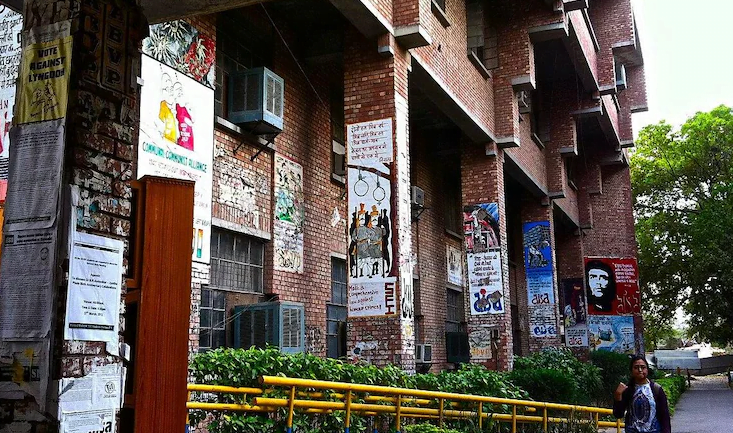Umar Khalid’s Social Media Amplification: Delhi Police’s Claims
The case of Umar Khalid, a former Jawaharlal Nehru University (JNU) student, has garnered significant attention due to allegations made by the Delhi Police regarding his involvement in the 2020 Delhi riots. Khalid stands accused of amplifying false narratives through social media, further complicating an already contentious legal battle.
Arguments Against Bail Plea
In a recent court hearing, the Delhi Police vehemently opposed Khalid’s bail plea, presenting compelling arguments to support their stance. The prosecution, represented by Special Public Prosecutor Amit Prasad, outlined Khalid’s purported involvement in spreading misinformation and orchestrating a skewed narrative in his favor.
Allegations of False Narrative Amplification
Delhi Police’s assertions revolve around Khalid’s alleged efforts to manipulate public opinion by disseminating misleading information through social media channels. According to Prasad, Khalid utilized his mobile phone to establish contact with various influential individuals, including actors, politicians, activists, and celebrities, urging them to share specific links aimed at bolstering his narrative.
Mobile Phone Data Evidence
The prosecution backed its claims with evidence derived from Khalid’s mobile phone data, which purportedly revealed his extensive network of connections and interactions with prominent figures. These exchanges, Prasad argued, were not merely casual conversations but strategic attempts to sway public perception in Khalid’s favor.
Links Sharing and Narrative Setting
Khalid’s alleged modus operandi involved sharing links to news articles and reports from certain portals, carefully selected to reinforce his version of events surrounding the Delhi riots. By urging influential individuals to amplify these narratives on their social media platforms, Khalid sought to shape public discourse and garner support for his cause.
Chats with Influential Individuals
The prosecution highlighted Khalid’s conversations with individuals boasting significant social media followings, suggesting a deliberate effort on his part to leverage their influence for his benefit. These exchanges, Prasad contended, formed part of a broader conspiracy to manipulate public sentiment and undermine the legal proceedings.
Video Clip Evidence
In a pivotal moment during the court proceedings, the prosecution presented a video clip featuring Khalid’s father being interviewed by a news portal. The content of the interview, according to Prasad, further corroborated Delhi Police’s claims, as Khalid’s father expressed a lack of faith in the Supreme Court and insinuated a bias against his son.
Rejection of Parity with Co-Accused
Delhi Police categorically rejected Khalid’s plea for parity with other co-accused individuals who had been granted bail, asserting that his role in the alleged conspiracy warranted distinct treatment. This assertion underscores the gravity of the charges levied against Khalid and the prosecution’s commitment to pursuing justice.
Legal Proceedings and Future Steps
The court has deferred further proceedings to allow for rebuttal by Khalid’s legal counsel, setting the stage for a crucial phase in the legal battle. As the case unfolds, the implications of Khalid’s alleged actions on the broader discourse surrounding dissent, activism, and legal accountability remain a subject of intense scrutiny and debate.
Conclusion
The allegations leveled against Umar Khalid by the Delhi Police underscore the complexities of navigating the intersection between activism, social media, and legal accountability. As the legal battle ensues, the case serves as a poignant reminder of the far-reaching implications of online advocacy and the imperative of upholding ethical standards in shaping public narratives.
FAQs (Frequently Asked Questions)
- What are the charges against Umar Khalid in the 2020 Delhi riots case?
- Umar Khalid has been booked under the stringent Unlawful Activities (Prevention) Act (UAPA) for his alleged involvement in the larger conspiracy behind the 2020 northeast Delhi communal riots.
- How does the Delhi Police allege Umar Khalid manipulated public opinion through social media?
- The Delhi Police claims that Umar Khalid utilized his social media presence to disseminate misleading information and shape a narrative in his favor regarding the 2020 Delhi riots.
- What evidence does the prosecution cite to support its claims against Umar Khalid?
- The prosecution presents evidence from Khalid’s mobile phone data, including interactions with influential individuals and requests
